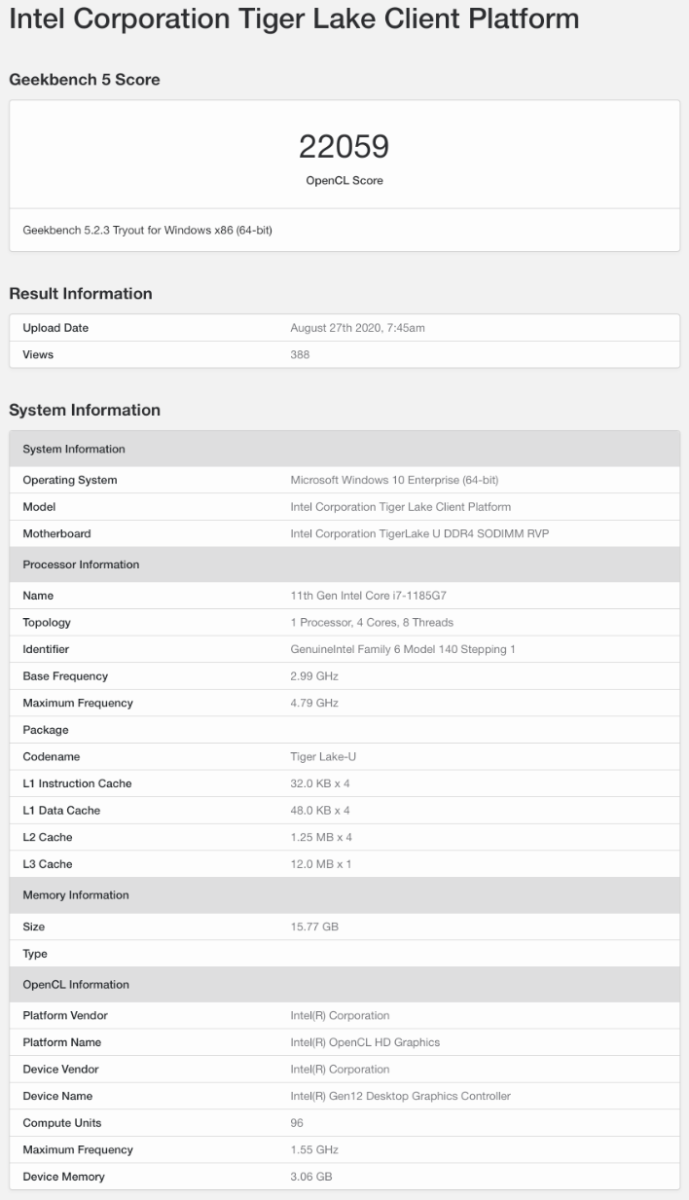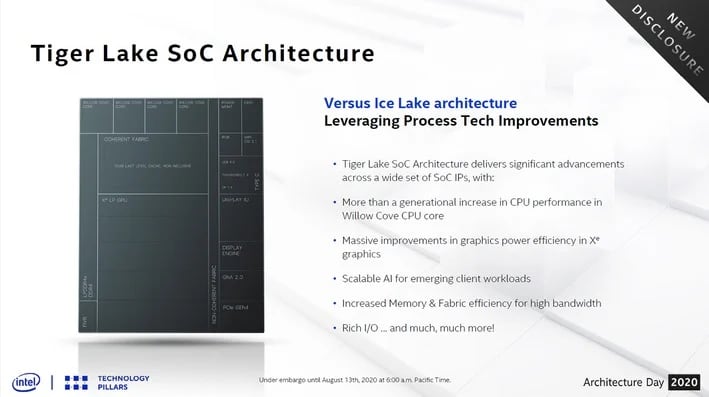Intel Core i7-1185G7 Tiger Lake CPU Leaks With 4.8GHz Turbo Clock And 1.55GHz Xe GPU

Today, however, we’re seeing benchmarks for the flagship Core i7-1185G7 processor, which has also been spotted in the past few months. In what we presume to be its production trim, the Core i7-1185G7 has an impressive base clock of 3GHz and a maximum turbo boost of 4.8GHz. To put that in perspective, the Core i7-1165G7 has base/turbo clocks of 2.8GHz and 4.7GHz respectively. It’s also worth noting that the current 10th generation Ice Lake Core i7-1065G7 has a base clock of just 1.3GHz against a turbo clock of 3.9GHz.

The Core i7-1185G7 is also flexing its muscles with a full 12MB of L3 cache (versus 8MB on the Core i7-1065G7), while its 12th generation integrated Xe GPU is boasting a full 96 execution units (versus 64). Perhaps even more telling at what kind of performance that the Core i7-1185G7 will be able to deliver — on both CPU and GPU fronts — is that the Xe GPU has a maximum clock of 1.55GHz instead of the 1.1GHz on the Core i7-1065G7.
For something a bit lower on the totem pole in Tiger Lake land, there’s also the Core i5-1135G7, which was spotted within an Acer Aspire A515-56 laptop. This machine is rocking 2.4GHz/4.2GHz base/turbo clocks along with 8MB of L3 cache. This Xe GPU in this machine features 80 execution units and a maximum clock of 1.3GHz.
All of the Tiger Lake parts that we’ve seen so far features 4-core/8-thread CPU configurations. No matter which way you slice it, Tiger Lake is going to offer a significant boost in performance over Ice Lake, and will offer a significant challenge to Ryzen 4000 (with maybe the exception of multi-threaded performance).
You can see our deep dive into Intel’s Tiger Lake architecture right here, including its 10nm SuperFins, Willow Cove cores, PCIe 4.0 support, LPDDR4/LPDDR5 support, and Thunderbolt 4.0 compatibility.


